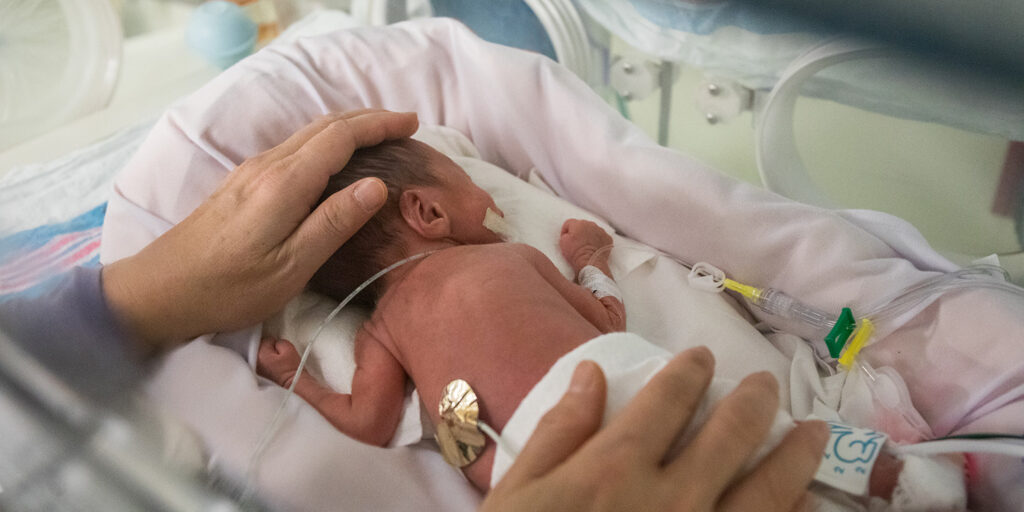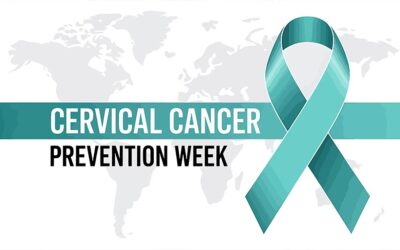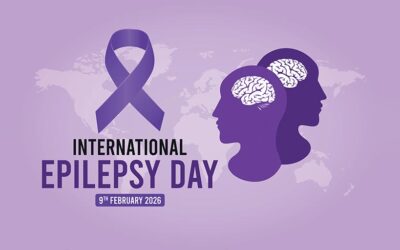Inside a Level 3 NICU: Advanced Care for Newborns

The birth of a baby is a moment of joy for every parent, but for some families, it also brings some unexpected challenges requiring specialised care. This is where a Neonatal Intensive Care Unit(NICU) plays a vital role. Equipped with advanced monitoring systems and staffed by highly trained specialists, NICUs provide the support that vulnerable newborns need to survive and grow. Among these, a Level 3 NICU offers comprehensive care for premature and seriously ill infants, providing advanced respiratory support, specialised nutrition, and access to a wide range of paediatric subspecialists
Table of Contents
ToggleLevel III: Neonatal Intensive Care Unit
Designed for premature and critically ill infants, a Level 3 NICU provides advanced respiratory support, intravenous therapies, specialised nutrition, and continuous monitoring. It also has access to a wide range of paediatric subspecialists, ensuring comprehensive care for babies with serious health conditions.
What is a Level 3 NICU and Why is it Important?
A Level 3 NICU is an advanced neonatal intensive care facility designed to treat premature and critically ill babies. It is equipped to provide round-the-clock monitoring, mechanical ventilation, and intravenous nutrition, along withspecialised treatments for conditions affecting the lungs, heart, brain, and digestive system. In this article, we will explore what an NICU is, why a Level 3 NICU is important, which babies benefit from this level of care, and the advanced facilities that enable their recovery. Let’s begin by understanding the key features of an NICU.
What is an NICU?
A Neonatal Intensive Care Unit (NICU) is a specialised hospital unit designed to care for newborns who require extra medical attention. These may include premature babies, those with low birth weight, congenital conditions, or infants facing breathing and feeding difficulties. An NICU is equipped with advanced technology such as incubators, ventilators, and continuous monitoring systems, along with a dedicated team of neonatologists and nurses trained in newborn intensive care. The aim of an NICU is to stabilise vulnerable newborns, provide round-the-clock support, and give them the best chance for healthy growth and development.
Levels of Neonatal Care
Not all newborns require the same level of medical support. To ensure every baby receives appropriate treatment, neonatal services are divided into levels based on the complexity of care provided:
Level I: Well Newborn Nursery
Provides routine care for healthy, full-term babies who may need basic monitoring after birth.
Level II: Special Care Nursery
Offers care for babies born slightly premature or with mild health issues, such as feeding difficulties, jaundice, or minor infections. These babies usually require short-term support before they are ready to go home.
The importance of a Level 3 NICU lies in its ability to deliver comprehensive care for vulnerable newborns without the need for frequent transfers to other facilities. With neonatologists, specially trained nurses, and access to paediatric subspecialists, a Level 3 NICU ensures timely interventions that can significantly improve survival and long-term development outcomes.
Which Babies Need Level 3 NICU Care?
Not every newborn requires intensive medical attention, but certain babies benefit from the specialised care available in a Level 3 NICU. These include:
- Premature infants: Especially those born before 32 weeks or with very low birth weight.
- Babies with breathing difficulties: Infants needing oxygen therapy, ventilator support, or treatment for respiratory distress syndrome.
- Infants with congenital conditions: Such as heart defects, neurological concerns, or digestive system abnormalities requiring close monitoring.
- Newborns with infections: Babies affected by sepsis or other serious infections needing intravenous antibiotics and continuous care.
- Babies requiring specialised nutrition: Infants unable to feed orally who need intravenous or tube-based nutrition for growth.
- Multiple births: Twins, triplets, or higher-order multiples who are often born prematurely or with low birth weight.
- Newborns with unstable vital signs: Babies who require round-the-clock observation to stabilise heart rate, breathing, and body temperature.
Advanced Technology and Facilities Available in a Level 3 NICU
A Level 3 NICU is equipped with specialised technology and facilities to provide comprehensive care for vulnerable newborns. These resources ensure that premature and critically ill babies receive timely and effective support:
- Incubators and Warmers: Maintain the baby’s body temperature in a controlled environment.
- Advanced Ventilators: Provide respiratory support for infants with underdeveloped or weak lungs.
- Continuous Monitoring Systems: Track heart rate, breathing, oxygen levels, and other vital signs round the clock.
- Intravenous (IV) Therapies: Deliver essential fluids, nutrition, and medicines directly into the bloodstream.
- Phototherapy Units: Treat newborn jaundice safely and effectively.
- Access to Paediatric Subspecialists: Neonatologists work closely with cardiologists, neurologists, and other specialists to address complex health needs.
- Infection-Control Protocols: Stringent hygiene measures ensure a safe environment for vulnerable babies.
Duration of Stay in the NICU
One of the biggest questions parents often ask is, “How long will my baby need to stay in the NICU?” The truth is, there isn’t a single answer because every newborn’s journey is different. The length of stay depends on how premature the baby was, their birth weight, and how quickly they respond to treatment and feeding.
For some babies, the stay may be just a few days for observation, especially if they need help adjusting to feeding or maintaining their body temperature. For others, particularly those born very early, the NICU may become their home for several weeks or even months, until they are strong enough to breathe, feed, and grow without support.
Doctors usually decide on discharge when a baby can:
- Breathe on their own without oxygen or ventilator support.
- Maintain a stable body temperature outside the incubator.
- Feed well, either by breastfeeding or bottle, and gain weight consistently.
- Show stable vital signs such as heart rate and oxygen levels.
Instead of fixed timelines, neonatologists focus on the baby’s developmental milestones. This means parents can trust that their child will only be discharged once it is truly safe.
The Role of Parents in NICU Care
Parents often feel nervous seeing their newborn in the NICU, but their presence and involvement are just as important as the medical care. Active participation helps babies recover faster and makes parents feel more confident. Here’s how parents play a vital role:
- Providing comfort and reassurance: Talking softly or placing a gentle hand inside the incubator helps calm and stabilise the baby.
- Kangaroo care (skin-to-skin contact): Holding the baby close regulates breathing, heartbeat, and temperature while building a strong emotional bond.
- Joining in daily care: Small tasks such as helping with feeding, changing nappies, or soothing the baby give parents a sense of connection.
- Supporting feeding and nutrition: Breast milk, even in small amounts, strengthens immunity and aids healthy growth.
- Reducing stress and anxiety: Being part of the baby’s care makes parents feel less helpless and more reassured about the recovery journey.
- Preparing for life after discharge: Involvement during NICU stay equips parents with the confidence and skills needed to care for their baby at home.
Why Graphic Era Hospital is Trusted for Level 3 NICU Care in Dehradun
For parents, choosing where their newborn receives care is one of the most important decisions they will ever make. At Graphic Era Hospital, the Level 3 NICU combines medical expertise, modern facilities, and compassionate support to ensure high-risk babies get the best possible start in life. Here’s what makes the hospital’s NICU care trusted by families across Uttarakhand:
- Experienced neonatology team: Skilled neonatologists, paediatricians, and specially trained nurses are available round the clock. Their combined expertise ensures timely decisions and immediate intervention when every second counts.
- Advanced monitoring and support: From incubators and ventilators to phototherapy units, the NICU is equipped to manage premature and critically ill babies. This technology helps create a controlled environment where babies can grow safely.
- Access to paediatric subspecialists: Specialists in cardiology, neurology, and other fields provide timely support when babies need extra care. This multidisciplinary approach ensures no health concern is left unaddressed.
- Family-centred approach: Parents are encouraged to stay involved in their baby’s care through bonding, kangaroo care, and participation in daily routines. This not only benefits the baby’s recovery but also strengthens parent–child connection.
- Safe and supportive environment: Strict infection-control protocols and a nurturing atmosphere create the right balance of safety and comfort. Families can feel reassured knowing their baby is cared for in a secure setting.
Giving Vulnerable Newborns the Best Start
The journey through the NICU can feel overwhelming, but with the right support, vulnerable newborns have a strong chance of recovery and healthy development. A Level 3 NICU provides the specialised care, technology, and expertise needed to guide babies through their earliest and most vulnerable days. At Graphic Era Hospital, the focus is not only on medical treatment but also on creating an environment where families feel supported and involved every step of the way. To book a consultation with a neonatologist at Graphic Era Hospital, call 1800-889-7351, and we will support you in giving your baby the best possible care.
Frequently Asked Questions (FAQs)
What is a Level 3 NICU and how is it different from other NICU levels?
A Level 3 NICU is designed for premature and critically ill newborns. It provides advanced respiratory support, intravenous therapies, and continuous monitoring – more specialised than Level 1 or 2 units.
Which babies usually need Level 3 NICU care?
Premature babies, newborns with very low birth weight, or infants with breathing problems, infections, or congenital conditions often require Level 3 NICU care.
How long does a baby stay in a Level 3 NICU?
The duration varies. Some babies need only a few days, while very premature or ill infants may stay for weeks or months until they can feed, breathe, and grow without support.
Which hospital offers the best Level 3 NICU in Dehradun?
Graphic Era Hospital in Dehradun has a dedicated Level 3 NICU with advanced technology, skilled neonatologists, and round-the-clock nursing care for vulnerable newborns.
Can I find Level 3 NICU services near me in Uttarakhand?
Yes. Graphic Era Hospital in Dehradun provides Level 3 NICU services, making advanced neonatal care accessible for families across the region.
Are parents allowed to be with their babies in the NICU?
Yes. Parents are encouraged to bond with their babies through kangaroo care, feeding support, and involvement in daily routines, while following safety protocols.
How can I book a consultation with a neonatologist at Graphic Era Hospital?
You can call 1800-889-7351 to book a consultation with a neonatologist at Graphic Era Hospital and get the right guidance for your baby’s care.
By Specialities
- Bariatric Surgery
- Cancer Care
- Cardiology
- Dental
- Dermatology
- Diabetes & Endocrinology
- Endocrinology and Diabetes
- ENT (Ear Nose Throat)
- Eye Care
- Gastroenterology
- Haematology
- Health Awareness
- Health Care
- Health Tips
- Hematology
- Hepatology
- Internal Medicine
- Mental Health and Behavioural Sciences
- Metabolic
- Neonatology
- Nephrology
- Neurology
- Nutrition & Dietetics
- Obstetrics & Gynaecology
- Oncology
- Ophthalmology
- Orthopaedics
- Paediatric
- Physiotherapy & Rehabilitation
- Plastic and Reconstructive Surgery
- Psychology
- Pulmonology
- Rheumatology
- Spine
- Urology
Recent Posts
- The Real Reasons for Delayed Periods: Is It Stress, Diet, or Hormones?
- Thalassaemia Explained: Types, Symptoms, Inheritance Patterns, and Management
- Cervical Cancer Prevention Week 2026: A Global Call to Prioritise Cervical Health
- From Redness to Irritation: A Complete Guide to Skin Rashes
- International Epilepsy Day 2026: A Call to End Stigma and Discrimination
Need expert medical advice?
Share your details and our healthcare specialists will reach out to assist you.
By proceeding, you acknowledge and agree to our Privacy Policy, Terms of Use, and Disclaimer.



















